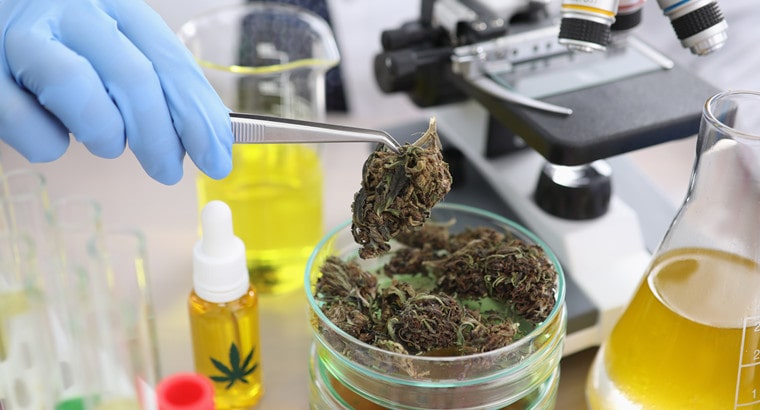Over the last few decades, the advancement of technology has significantly impacted cannabis products’ manufacturing. As the cannabis market enlarges and becomes more widely accepted, manufacturers are looking for ways to increase efficiency and improve product quality.
From automated harvesting to sophisticated extraction methods, technology is playing a crucial role in how cannabis products are produced. We will explore the technological advancements in cannabis product manufacturing that have revolutionized the industry.
Automated harvesting
One of the most significant technological advancements in cannabis product manufacturing is the use of automated harvesting machines. Machines such as the Terminator and the GreenBroz use precision cutting blades to trim cannabis buds from the plants, eliminating the need for manual labor. These machines not only save time and money for the manufacturer, but they also ensure a consistent product.
One option to consider is trying out CBD tinctures from (https://serenetree.com/). Without the variance in trimming quality, manufacturers can produce products that meet stringent standards.
The world we live in is constantly changing, and with progress comes improvement. In agriculture, automating the process of harvesting crops is one such improvement. Farmers have always relied on a lot of manual labor to ensure their lands are productive. Harvesting was a process that required a lot of hands-on time and energy.
But today, automation of harvesting is changing all of this. Modern technology has allowed for the creation of advanced automated machines that can get the job done faster, reducing the time and workforce needed to complete the task. This leads to significant cost savings for the farmers and helps preserve their limited resources. The use of automated harvesting machines has become a vital tool in the agricultural industry.
Controlled indoor cultivation
Indoor cultivation is becoming increasingly popular because of the control it offers. With the ability to control the environment, manufacturers can optimize plant growth, reduce pests and diseases, and increase yields.
Modern indoor cultivation systems use LED lights that mimic sunlight, automated nutrient delivery systems, and sensors to monitor factors like temperature and humidity. All these controlled factors help create a consistent product, which is essential for quality assurance.
Sophisticated extraction methods
The extraction process is one of the most critical aspects of manufacturing cannabis products. In the past, manufacturers used simple methods such as heat and pressure to extract the essential oils from the plant.
However, with advancements in technology, manufacturers now have access to sophisticated techniques such as CO2 extraction, hydrocarbon extraction, and ethanol extraction. These methods allow for a more precise and efficient extraction process, resulting in higher yield and better quality products.
Analytical testing
With the growth of the cannabis industry, there is an increased demand for quality assurance. Analytical testing having a vital role in ensuring that the products are safe and contain the appropriate compounds.
Laboratories now use advanced techniques such as high-performance liquid chromatography and gas chromatography-mass spectrometry to test for potency, residual solvents, and contaminants. These techniques provide manufacturers with accurate information about their products, which is crucial in a regulated industry such as cannabis.
Environmental and energy sectors, as well as the food and pharmaceutical industries, depend heavily on analytical testing. It entails analyzing chemicals using scientific procedures and methodologies. And determine their composition and properties.
With the increasing need for high-quality and reliable products, analytical testing ensures that companies can meet regulatory and safety standards while also improving product quality and efficiency.
As analytical testing continues to evolve, it is becoming more advanced and sophisticated. Cutting-edge technologies such as mass spectrometry, chromatography, and spectroscopy are now commonly used, allowing for faster and more accurate analyses. Analytical testing is not only essential for ensuring product quality, but it is also fundamental for advancing our understanding of the world around us.
Packaging and labeling
Packaging and labeling are essential aspects of the cannabis industry. Proper packaging ensures the product’s freshness and safety, while labeling provides consumers with crucial information such as potency and ingredients. Thanks to developments in printing technology, producers may now produce eye-catching custom packaging designs.
Additionally, labeling technology such as RFID and QR codes help track products from the manufacturer to the point of sale, ensuring transparency and accountability.
Packaging and labeling may seem like a small component of a product, but it is actually one of the most important aspects for businesses and consumers alike. A product’s packaging and label serve as a first impression and can make or break a sale. It must not only grab the attention of the consumer but also provide important information about the product, such as its ingredients and instructions for use.
Additionally, a well-designed package can also protect the product from damage, ensuring it remains intact and safe during transportation. Therefore, businesses must invest in high-quality packaging and labeling to stand out in the market and provide a positive experience for their customers.
Conclusion:
Technology developments in the creation of cannabis products have entirely changed the market, increasing production efficiency and guaranteeing consistent, high-quality products. Automated harvesting, controlled indoor cultivation, sophisticated extraction methods, analytical testing, and packaging and labeling all play a crucial role in the manufacturing process. We may anticipate more technical developments to emerge as the demand for cannabis products rises, further altering the sector.










